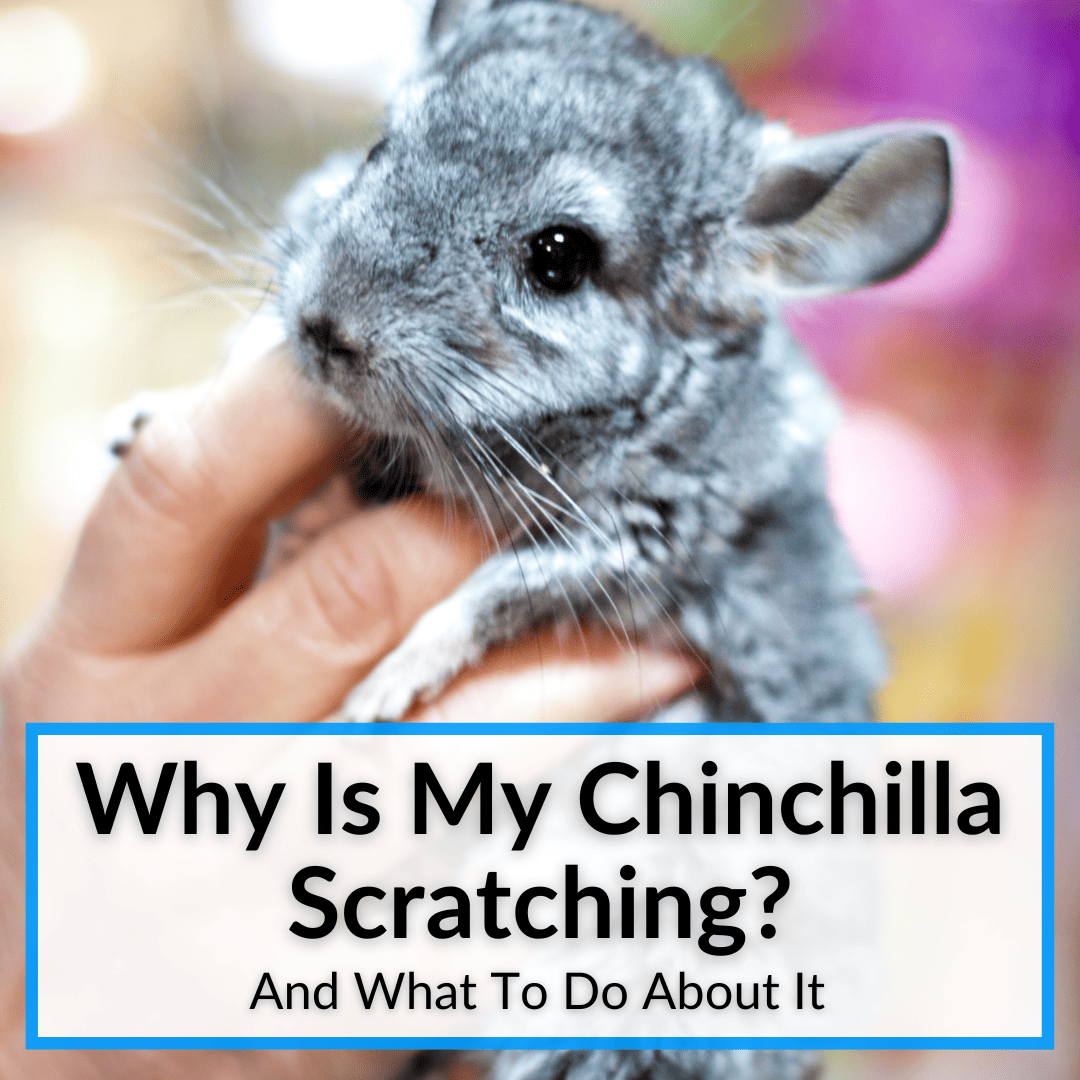
Whenever I see my chinchilla (or my dog) behaving differently, I worry.
I want to race it to the vet to make sure it is ok. But any type of trip is stressful for a chinchilla.
It is much better to take a breath and figure out what might have caused the change in behavior.
If your pet is suddenly scratching a lot, ask yourself “Why is my chinchilla scratching.
And since you’re here, that obviously what you did. So keep reading to learn why chinchillas might start scratching. Hopefully it will help you figure out what is causing yours to scratch, and also how to make it feel better again.
Contents
Why Is My Chinchilla Scratching?
Chinchillas can scratch themselves for a number of reasons, ranging from minor skin irritations to serious health conditions. If you notice your pet suddenly scratching a lot more, you need to pay attention.
If possible, you want to determine what is causing your chinchilla to scratch. If it is something serious, get it to a vet. If you are unable to determine the cause for the scratching and it persists, you should see a vet, too. Here are the most common reasons a chinchilla might scratch.
Dry Skin
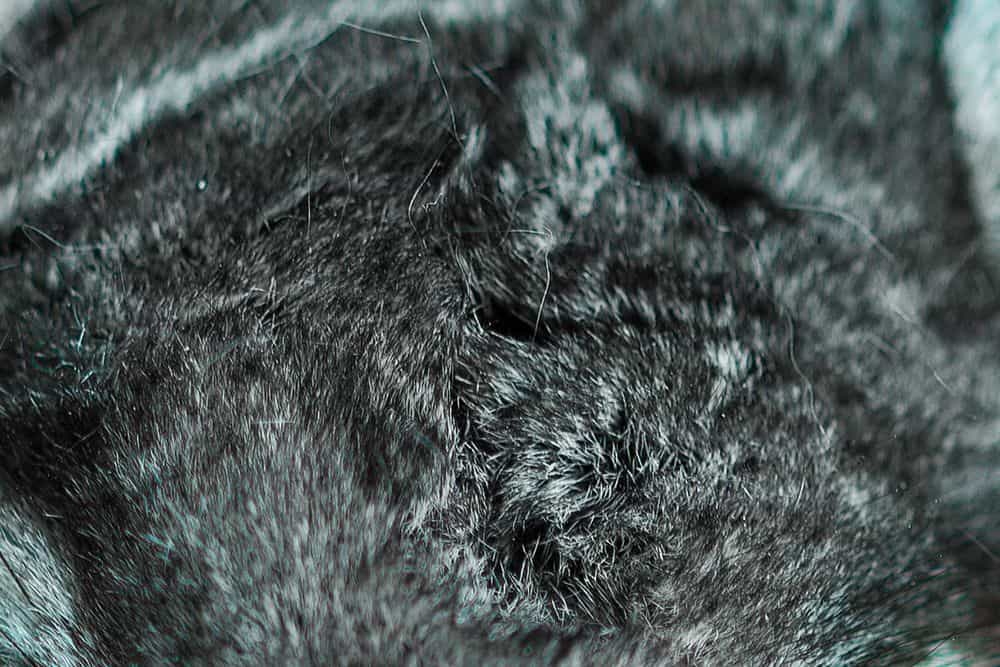
One of the most common causes of chinchilla scratching is dry skin. Dry skin can be result from a number of different factors, including low humidity levels, poor diet, lack of grooming, and certain medical conditions.
One of the most common causes of dry skin in chinchillas is a lack of moisture in the air, which can lead to dehydration and dryness of the skin. Additionally, if your chinchilla does not get regular dust baths, it may develop dry skin due to the buildup of oils and dirt on its fur.
To treat dry skin in chinchillas, it is important to address the underlying cause of the problem. If low humidity levels are the issue, you can increase the humidity in your chinchilla’s environment by using a humidifier, or placing a shallow dish of water in their cage.
Remember that chinchillas need a fairly low humidity environment to be comfortable. This article covers the ideal temperature and humidity for a chinchilla.
You should also ensure that your chinchilla is eating a balanced diet that is rich in essential fatty acids and vitamins. Regular grooming is important for preventing and treating dry skin in chinchillas, too.
Mostly, grooming simply means providing your chinchilla with 2 to 3 dust baths a week and letting it clean itself. But you can also use a soft-bristled brush to remove any stubborn dirt or debris from your chinchilla’s fur.
If your chinchilla’s dry skin persists despite these measures, it may be a sign of an underlying medical condition. In this case, it is important to seek veterinary care to determine the cause of the problem and develop an appropriate treatment plan.
What you should not do is follow some of the advice I’ve seen to mist your chinchilla by spraying it with water, or to give it a full water bath. You should not wash a chinchilla with water. Leaving your chinchilla with damp fur can result in an infection.
Parasites
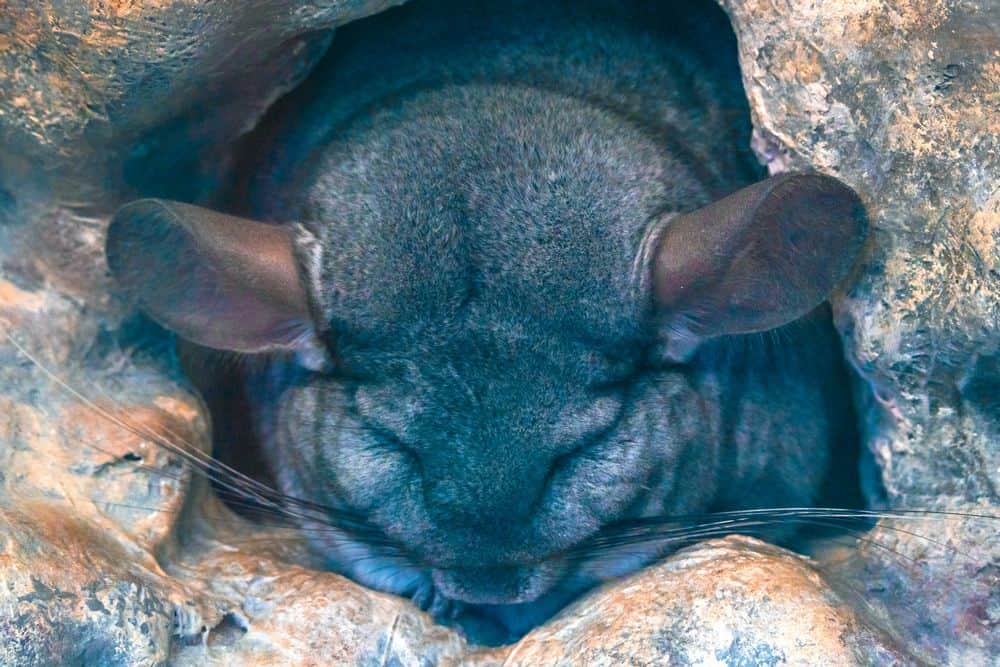
Parasites like mites and fleas are also a possible cause of chinchilla scratching. If you notice your chinchilla scratching excessively or see small bites on its skin, it may have a parasite problem, which can cause some very itchy skin.
Take your pet to the vet immediately to get a proper diagnosis. The vet may prescribe topical creams, medication, or a flea/tick preventative to help solve the problem.
The best way to keep harmful parasites away from your chinchilla is to maintain good hygiene, cleanliness and regularly examine your chinchilla for signs of infestations.
Allergies
Chinchillas can develop allergies to their food, bedding, or other environmental factors. Symptoms may include scratching, sneezing, wheezing, and watery eyes.
To identify the allergen, switch one thing at a time and monitor your chinchilla’s reaction. If the symptoms persist, take your chin to the vet for a proper diagnosis and treatment plan.
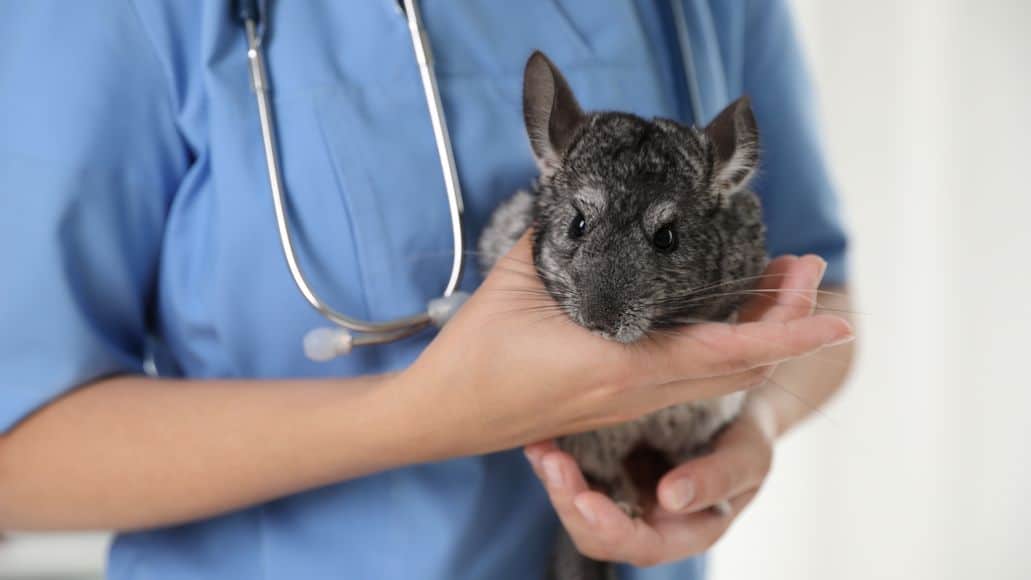
Treatment for allergic reactions in chinchillas may include medications such as antihistamines, corticosteroids, or antibiotics. You may also need to alter your chinchilla’s environment to reduce exposure to the allergen. This may involve changing their bedding, food, and cleaning supplies, improving ventilation, or using air purifiers.
Stress
Stress can also cause chinchillas to scratch more frequently. Changes in the environment such as moving to a new home or introducing a new pet can cause stress.
One of the most effective stress prevention measures is creating a suitable living environment for your chinchilla. Chinchillas require a spacious, quiet, well-ventilated, and temperature-controlled living space.
Ensure that the cage is clean, and your pet has adequate space to move around, play, and rest. You should add some hiding spots and toys to give your pet a place to feel safe and some mental stimulation.
Avoid exposing your chinchilla to direct sunlight, loud noises, or extreme temperature fluctuations. all of those can trigger stress. If the scratching continues, take your chinchilla to the vet to ensure there isn’t an underlying health condition causing the stress.
Infections
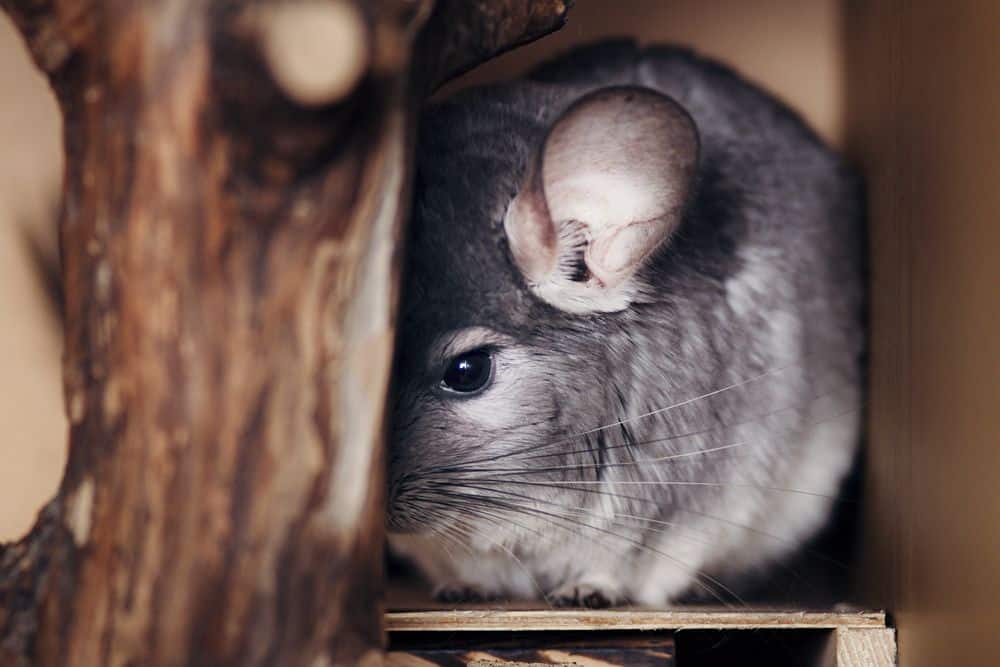
Infections, like ringworm or bacterial infections, can also cause chinchilla scratching. Symptoms may include bald patches, redness, and flaky skin. Take your chinchilla to the vet if you notice any of these symptoms, because infections can be serious if left untreated. Your vet may prescribe a topical or oral medication to help solve the problem.
Chinchilla Scratching: Final Thoughts
There is no single answer to the question: “why is my chinchilla scratching?” They can scratch for a number of different reasons. Your first job is to try and figure out why your pet is suddenly scratching a lot.
Oncer you’ve done that, take steps to remedy the underlying issue. If you need a vet’s help, get it. And if you can’t determine the reason for the scratching, or if the problem persists no matter what you try, you should also see a vet.
Leave a Reply